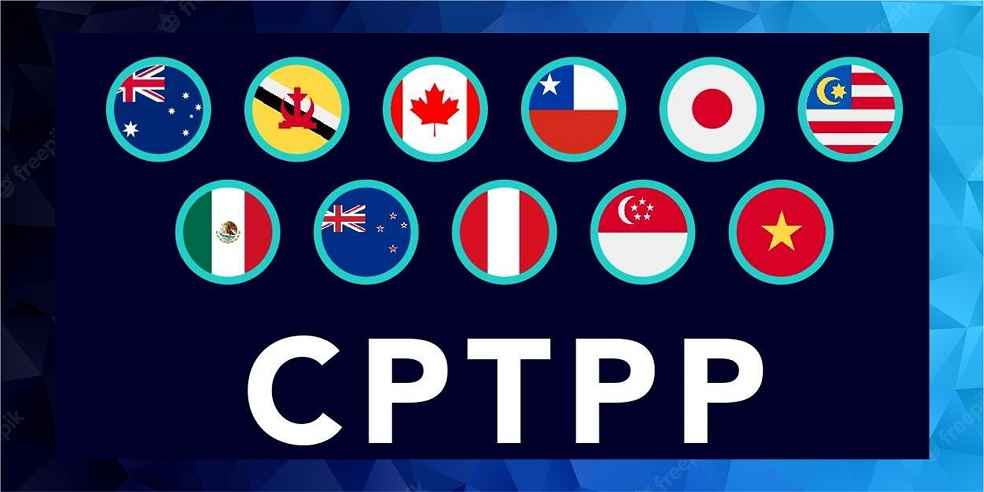The United Kingdom has officially signed a treaty to join the Comprehensive and Progressive Agreement for Trans-Pacific Partnership (CPTPP), a major Indo-Pacific trade bloc, marking its most significant trade agreement since Brexit.
On Sunday, the UK Business Minister Kemi Badenoch signed the accession protocol for the CPTPP in Auckland, New Zealand. This move has been lauded by Brexit supporters as a significant boost for UK growth, while critics suggest its benefits are marginal compared to EU trade.
Badenoch praised the deal as a ‘modern and ambitious agreement,’ emphasizing that the UK’s participation in the CPTPP demonstrates its commitment to open business relations.

According to a government analysis cited by Sky News, this agreement is set to boost UK exports by £1.7 billion, imports by £1.6 billion, and the GDP by £1.8 billion over the long term. The agreement is projected to come into effect in the second half of 2024.
The CPTPP is a landmark pact established in 2018 to eliminate or significantly reduce tariffs and foster open services and investment markets among its 11 member nations. The pact also includes provisions to manage competition, intellectual property rights, and protection for foreign companies.
Significantly, this agreement is seen as a counter to China’s regional dominance. Nevertheless, several countries, including China, Taiwan, Ukraine, Costa Rica, Uruguay, and Ecuador, have shown interest in joining the partnership.

The UK government views the CPTPP as a vital tool for reducing tariffs on UK exports to Asia Pacific countries. With the UK’s membership, the trading bloc will represent a combined GDP of £12 trillion, accounting for 15% of global trade.
The move comes as part of the UK’s ‘Global Britain’ strategy, a post-Brexit initiative to foster trade ties with rapidly growing economies beyond the EU. Despite these efforts, critics argue that such deals will not fully offset the economic damage incurred by Brexit.
While the UK has existing trade agreements with 10 of the 11 other CPTPP members, the predicted economic boost will likely only increase the GDP by 0.08% annually. Additionally, the Office for Budget Responsibility projects a 4% decrease in the UK’s long-term productivity as a result of Brexit.
In other CPTPP developments, members are currently gathering information about interested nations to assess their ability to meet the bloc’s high standards. Decisions on new memberships will be made collectively, according to a joint statement.
What is CPTPP?

The Comprehensive and Progressive Agreement for Trans-Pacific Partnership (CPTPP) is a milestone agreement enacted in 2018, aiming to reduce trade barriers among 11 countries: Australia, Brunei, Canada, Chile, Japan, Malaysia, Mexico, New Zealand, Peru, Singapore, and Vietnam.
The agreement, mandates member countries to significantly diminish or eliminate tariffs, fostering a commitment to open services and investment markets. It additionally includes provisions to regulate competition, protect intellectual property rights, and ensure safeguards for foreign corporations.
The CPTPP is recognized as countering China’s regional influence. Despite this, China, Taiwan, Ukraine, Costa Rica, Uruguay and Ecuador have also expressed interest in becoming part of the CPTPP partnership. But lawmakers from several countries, including the UK and Australia, are arguing for China’s exclusion.
EDITOR’S CHOICE | Aluminium Will Dominate the EV And Hydrogen Fuel Era



